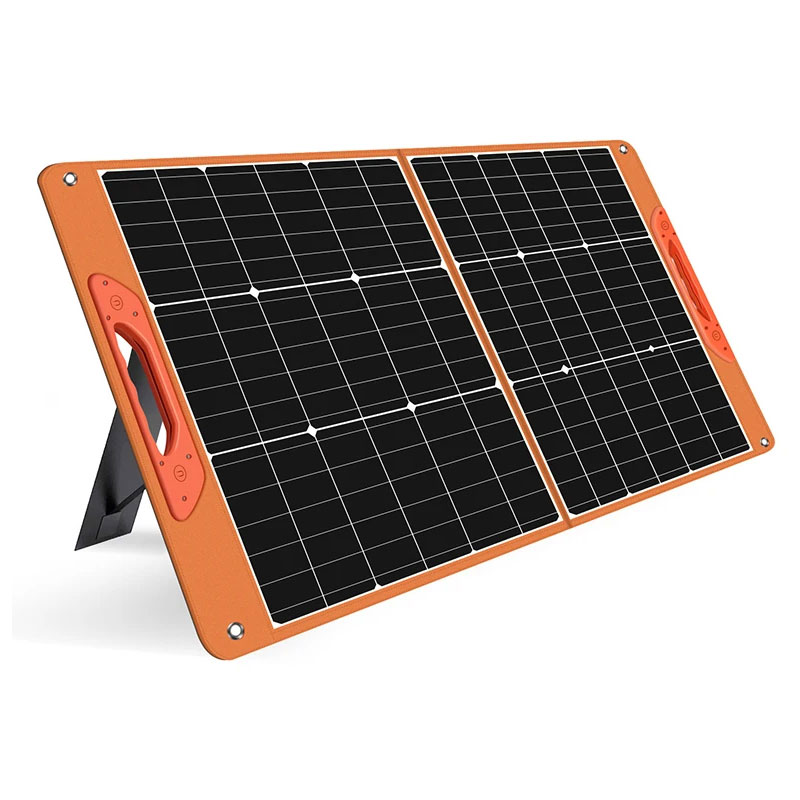What Makes Solar Panels the Future of Clean Energy?
2025-10-29
Solar panels, also known as photovoltaic (PV) modules, are devices designed to convert sunlight into usable electricity through a process known as the photovoltaic effect. Composed of semiconductor materials such as monocrystalline or polycrystalline silicon, these panels capture solar radiation and transform it into direct current (DC) electricity. Through an inverter, the DC power is converted into alternating current (AC), the standard form of electricity used in homes and businesses.
In an age of escalating energy demand and environmental awareness, solar panels have become a cornerstone of sustainable power solutions. They are not only reshaping the global energy landscape but also redefining how individuals and industries manage their carbon footprint. The widespread integration of solar energy into residential, commercial, and industrial sectors highlights its potential to become the dominant source of renewable energy in the coming decades.
Solar panels operate silently, require minimal maintenance, and offer long-term cost savings once installed. With technological innovations accelerating, today’s systems are more efficient, durable, and adaptable than ever before. The core principle behind their operation lies in capturing sunlight — a free and abundant resource — and converting it into clean electricity without emitting greenhouse gases.
Below is a technical overview of the standard specifications of high-efficiency solar panels widely used in both residential and industrial applications:
| Parameter | Specification |
|---|---|
| Type | Monocrystalline / Polycrystalline |
| Efficiency Rate | 18% – 24% |
| Power Output Range | 350W – 700W per panel |
| Temperature Coefficient | -0.30% / °C |
| Lifespan | 25 – 30 years |
| Frame Material | Anodized Aluminum Alloy |
| Operating Temperature | -40°C to +85°C |
| Certifications | IEC 61215, IEC 61730, ISO 9001 |
| Warranty | 12-year product warranty, 25-year performance warranty |
Modern solar panels are built to withstand harsh environments including heavy rain, high winds, and extreme temperatures. Many advanced panels come equipped with anti-reflective coatings and self-cleaning glass that increase light absorption and reduce maintenance needs. These features have made solar technology increasingly viable and appealing for both homeowners and large-scale enterprises.
Why Are Solar Panels Becoming an Energy Revolution?
The growing adoption of solar panels is not a coincidence — it is the result of economic, environmental, and technological convergence. As global energy prices fluctuate and fossil fuel reserves decline, solar energy provides a stable and predictable source of power. More importantly, it contributes to reducing carbon emissions, helping nations achieve their sustainability goals under the Paris Agreement.
Economic Advantage:
Installing solar panels allows users to significantly lower their electricity bills. In regions with high sunlight exposure, the return on investment (ROI) can often be achieved within 4 to 6 years, after which the energy generated is essentially free. Many governments offer tax credits, rebates, or net metering policies that further enhance financial returns.
Environmental Impact:
Each kilowatt-hour (kWh) of solar power generated replaces energy that would otherwise be produced from coal or gas. This transition reduces the emission of harmful pollutants such as carbon dioxide (CO₂), sulfur dioxide (SO₂), and nitrogen oxides (NOₓ). A standard residential solar system can offset approximately 100 tons of CO₂ over its lifespan, which is equivalent to planting over 2,000 trees.
Technological Progress:
The solar industry has seen remarkable innovations, such as bifacial panels that capture sunlight from both sides, perovskite-based cells that boost efficiency, and flexible thin-film panels that can be integrated into curved surfaces. Energy storage solutions like lithium-ion and sodium-ion batteries have also evolved, enabling users to store excess energy and use it during night or cloudy periods.
Grid Independence:
Solar panels empower users to achieve partial or complete independence from the public electricity grid. This autonomy is particularly valuable in remote or disaster-prone areas where power outages are frequent. With the right system design, users can maintain a consistent power supply even when the grid fails.
Job Creation and Industry Growth:
The global solar industry has become one of the largest employers in the renewable energy sector. Manufacturing, installation, maintenance, and R&D activities continue to generate millions of new jobs worldwide. This expanding sector not only drives innovation but also contributes to national economies through green employment opportunities.
How Are Solar Panels Shaping the Future of Energy?
The future of solar energy is defined by integration, intelligence, and innovation. Emerging technologies are revolutionizing how solar panels interact with other systems, transforming them from simple power generators into smart energy ecosystems.
Smart Solar Systems:
The integration of artificial intelligence (AI) and Internet of Things (IoT) technologies allows solar panels to self-optimize based on weather conditions, consumption patterns, and grid demand. Smart inverters can automatically adjust voltage levels, ensuring maximum energy efficiency and improved safety.
Hybrid and Floating Solar Farms:
Hybrid systems combine solar power with wind or hydroelectric energy to ensure consistent energy output. Meanwhile, floating solar farms — installations on lakes or reservoirs — are gaining popularity for their ability to save land space and reduce water evaporation.
Building-Integrated Photovoltaics (BIPV):
BIPV technology seamlessly incorporates solar panels into architectural elements such as windows, roofs, and façades. This design-driven approach merges aesthetics with energy functionality, enabling buildings to become self-sustaining power units.
Recycling and Sustainability:
As solar panels reach the end of their lifespan, recycling technologies are evolving to recover valuable materials such as silicon, silver, and glass. This approach minimizes waste and strengthens the circular economy of the renewable energy industry.
Global Energy Transition:
Countries around the world are setting ambitious targets to increase the share of renewable energy in their national grids. With declining costs and rising efficiency, solar energy is positioned to become the leading source of electricity by 2050, surpassing both coal and natural gas.
Common Questions About Solar Panels (FAQ)
Q1: How long do solar panels last, and do they require much maintenance?
Solar panels are built for durability and typically last between 25 to 30 years. Most high-quality panels experience only a minor efficiency decline — around 0.3% to 0.5% per year. Maintenance is minimal and usually limited to cleaning the surface of the panels to remove dust or debris. Routine inspections by professionals every few years help ensure optimal performance.
Q2: Can solar panels work during cloudy or rainy days?
Yes, solar panels continue to generate electricity even under cloudy conditions, though at a reduced efficiency. Modern monocrystalline panels are particularly effective at capturing diffuse sunlight. For regions with extended cloudy periods, integrating battery storage systems can store excess energy generated on sunny days for later use, ensuring consistent power availability.
Why Choose Quacoa Solar Panels?
Among the many solar brands available, Quacoa stands out as a leader in reliability, innovation, and energy performance. Quacoa’s solar panels are designed with advanced cell technology, superior heat resistance, and enhanced low-light performance, ensuring maximum energy output throughout the year. Each panel undergoes rigorous quality testing under international standards to guarantee durability even in extreme weather conditions.
Quacoa’s commitment extends beyond manufacturing — it encompasses end-to-end energy solutions including system design, installation, and maintenance support. By prioritizing sustainability and efficiency, Quacoa aims to make solar power accessible, affordable, and adaptable to both residential and commercial users worldwide.
As the global energy transition accelerates, investing in solar technology is no longer a luxury but a necessity for long-term economic and environmental stability. Choosing Quacoa means choosing a partner dedicated to innovation, reliability, and a cleaner future.
Contact us today to learn more about how Quacoa Solar Panels can power your home, business, or industrial operations with sustainable, renewable energy solutions designed for the next generation.



